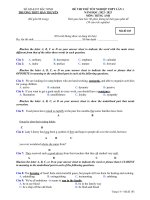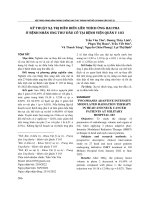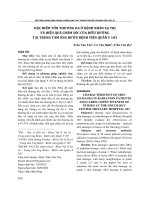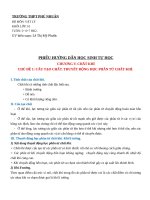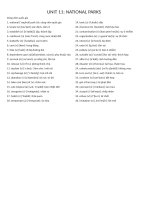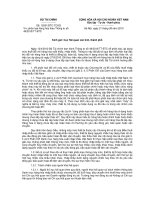Authors libby rittenberg 103
Bạn đang xem bản rút gọn của tài liệu. Xem và tải ngay bản đầy đủ của tài liệu tại đây (525.3 KB, 1 trang )
Market capitalist economies rely on economic freedom. Indeed, one way
we can assess the degree to which a country can be considered market
capitalist is by the degree of economic freedom it permits. Several
organizations have attempted to compare economic freedom in various
countries. One of the most extensive comparisons is a joint annual effort by
the Heritage Foundation and The Wall Street Journal. The 2008 rating was
based on policies in effect in 162 nations early that year. The report ranks
these nations on the basis of such things as the degree of regulation of
firms, tax levels, and restrictions on international trade. Hong Kong ranked
as the freest economy in the world. North Korea received the dubious
distinction of being the least free.
It seems reasonable to expect that the greater the degree of economic
freedom a country permits, the greater the amount of income per person it
will generate. This proposition is illustrated inFigure 2.15 "Economic
Freedom and Income". The group of countries categorized as “free”
generated the highest incomes in the Heritage Foundation/Wall Street
Journal study; those rated as “repressed” had the lowest. The study also
found that countries that over the last decade have done the most to
improve their positions in the economic freedom rankings have also had
the highest rates of growth. We must be wary of slipping into the fallacy of
false cause by concluding from this evidence that economic freedom
generates higher incomes. It could be that higher incomes lead nations to
opt for greater economic freedom. But in this case, it seems reasonable to
conclude that, in general, economic freedom does lead to higher incomes.
Government in a Market Economy
Attributed to Libby Rittenberg and Timothy Tregarthen
Saylor URL: />
Saylor.org
103


